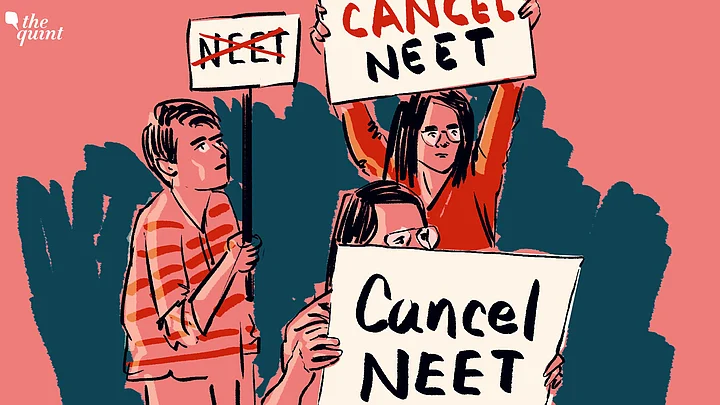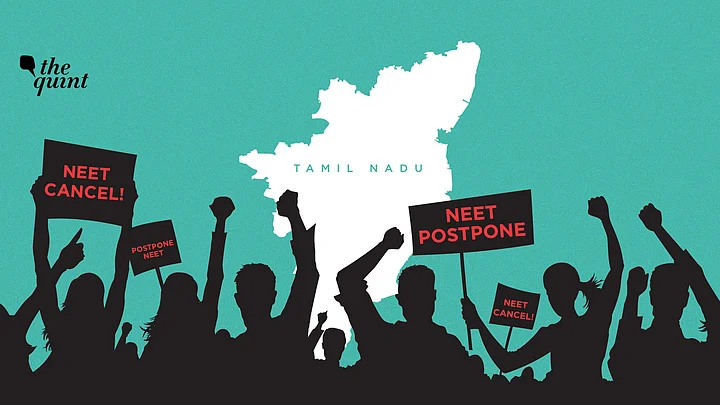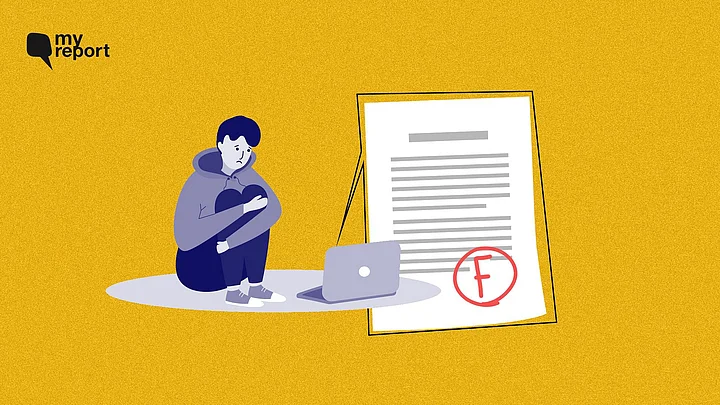On Monday, 13 September, Tamil Nadu Assembly passed the Tamil Nadu Admission to Undergraduate Medical Degree Courses Bill which seeks to stop medical admissions on the basis of the National Eligibility cum Entrance Test (NEET) for students of the state.
All parties, except the Bharatiya Janata Party, welcomed and supported the Bill.
The Bill introduced by Chief Minister MK Stalin in the Assembly has challenged a central law and will make a difference only with the Presidential assent.
The Quint takes a look at how this Bill stands the test of law and if the state can be allowed exclusive exemption from the national exam.
What Does This Bill Mean?
The Bill exempts medical aspirants in Tamil Nadu from taking NEET for admission to UG courses in medicine, dentistry and homeopathy. All medical admissions in the state will be based on marks obtained by students in the Class 12 board exam.
The Bill stands for, “social justice, uphold equality and equal opportunity, protect all vulnerable student communities from being discriminated”, Stalin said.
The Bill seeks to bring vulnerable student communities to the “mainstream of medical and dental education and in turn ensure a robust public health care across the state, particularly the rural areas”, he added.
How can this Bill Become a Law?
The Article 245 of Constitution of India details the extent of power of the Parliament and the Legislatures of States in different subject matters.
NEET and admission to medical colleges fall in the List III of the Seventh Schedule wherein both the Parliament and State Legislature have the power to make laws.
The Constitution states that where there is ‘repugnancy’ or ‘conflict’ between a Central law and a State law, the provisions of the Central law will prevail.
However, if the State law obtains the President’s assent, it will prevail over the Central law.
“This Bill passed in the Tamil Nadu Assembly is in conflict with the Union law. The President acts on the advise of the counsel at the Centre and so it is highly unlikely that it will get the President’s nod,” said a senior advocate to The Quint.
How Does DMK Intend to Argue its Case?
The Justice AK Rajan panel, constituted by the state government, is one of the first ever to analyse the impact of social status, economic backwardness, and reservation on the performance of students in a national examination.
Chief Minister MK Stalin hopes the Bill, which is based on the findings of the panel, will get the support of the Supreme Court and other Chief Ministers as well.
A study of medical admissions four years before and after NEET shows nearly a 10-time dip in state board students securing medical admission. There is also an exponential rise in CBSE students clearing the exam and securing seats.
In 2021, the number of students applying for NEET from Tamil Nadu dropped by 7 percent compared to the previous year.
According to the Tamil Nadu government’s data, submitted to the Madras High Court in 2019, only 2.1 percent of students who got admission in medical colleges had not taken coaching classes. Out of this, only 1.5 percent entered into government medical colleges.
Why Did TN's Attempt to Get Exemption Fail Earlier
In 2017, the AIADMK government tried to get Tamil Nadu exempted from the exam through an Ordinance but didn’t get the President’s nod.
It was approved by the Law and the Human Resources Development ministries.
The Health ministry, however, contended that if Tamil Nadu’s demand for exemption is acceded to, similar demands may arise from other states. Meanwhile, the Supreme Court directed the government to stick to NEET and said that there could be no "compromise on intellect".
Opposition to Entrance Tests Dates Back 3 Decades
The opposition to NEET is not new to Tamil Nadu as similar criticisms were made 35 years ago when the then AIADMK government, led by M G Ramachandran, decided to ensure admission to professional courses through an entrance examination. Subsequently, the Tamil Nadu Professional Course Entrance Examinations (TNPCEE) was introduced from 1984-85.
The DMK led by M Karunanidhi opposed it vehemently saying that the idea of an entrance test was against “principles and policies” of E V Ramasamy and C N Annadurai, who fought for the welfare of the economically backward sections of the society.
In June 2005, late AIADMK supremo Jayalalithaa announced that the common entrance test would be abolished as it had impacted the rural students. In 2006, the then DMK government brought in the Tamil Nadu Admission in Professional Educational Institutions Act, 2006 Act 3 of 2007 that provided admission to engineering, medicine, dental, agriculture, and other allied courses on the basis of marks in the qualifying Class 12 exam. It received the President’s assent.
It was only in 2017, after the introduction of NEET, admissions to medical and dental courses, were done on the basis of the common examination. It is to be noted that NEET will be applicable in Tamil Nadu at least for medical admissions this year.
Can TN Ask For a Jallikattu-Like Provision?
Legal experts told The Quint that the Tamil Nadu government could seek the Centre's invention the same way it did for Jallikattu.
In 2014, Jallikattu was under a judicial ban in Tamil Nadu following the Supreme Court’s verdict in May 2014. An amendment to the Prevention of Cruelty to Animals Act, 1960, was needed to remove the basis on which the judgment was passed.
The State government promulgated an Ordinance to demand for legal protection to conduct the bull-taming sport in the state. The draft of the Ordinance was sent to the Union government, which examined it and gave its consent, on behalf of the President, to its promulgation by the Governor.
The DMK-led government hopes that the Centre will review Tamil Nadu's case exclusively and allow exclusive exemption from NEET, as it affects the sentiments and prospects of students of the state.
(At The Quint, we question everything. Play an active role in shaping our journalism by becoming a member today.)






